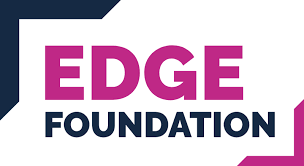At the Orpheus Centre, a specialist further education college for young disabled adults 18-25, we’ve always emphasised using the arts to build confidence and essential life skills. We also have a history of using projects in our teaching – an approach that lends itself well to the arts. However, it wasn’t until last year that a colleague and I discovered project-based learning (PBL) via a workshop with the Edge Foundation. Little did we know at the time how this teaching methodology would revolutionise our approach as a college.
As a college, Orpheus has a long-standing tradition of running small projects in theme-focused study weeks. However, when we discovered project-based learning and its associated pedagogies, we immediately saw how compatible it would be with our approach. While our past projects weren't always consistent or goal-focused, Edge’s workshop showed us the benefit of a solid structure. So we decided to conduct a six-week pilot using PBL and the driving question: ‘Who Am I?’
This initial project encouraged learners to explore their identity and its importance within the community. While it was our first foray into PBL, using it for the first six weeks of the academic year allowed us to quickly assess learners’ academic level, independent living and baseline skills. In fact, it was so successful that we’re planning to use it again at the start of the next academic year. But this was just the start.
PBL’s structured nature and community focus perfectly resonate with Orpheus’s mission to foster communication, social interaction skills, and self-advocacy among our learners. The success of our initial pilot also really highlighted its value in a Special Educational Needs (SEN) setting, so we soon decided to roll it out in other curriculum areas.

